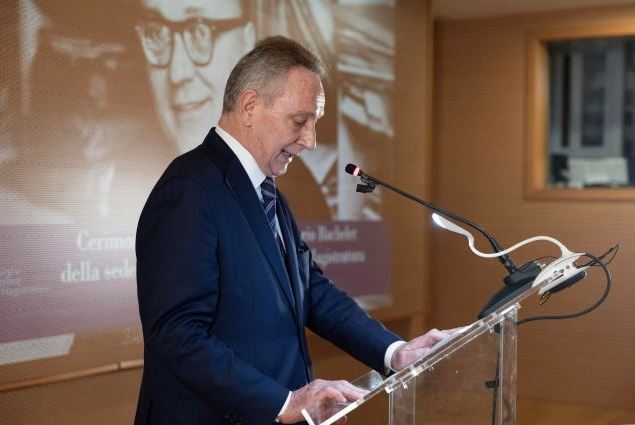Giovanni Bachelet was 25 years old the day Anna Laura Braghetti killed her father Vittorio, president of the CSM, on 12 February 1980, on the stairs of the Sapienza, in the name and on behalf of the Red Brigades. Now she is 70, two less than the then girl who shot up those stairs and who disappeared on November 5th.
In life Bachelet is not a jurist, he is a physicist, and while he was taking part in a meeting in memory of Giovanni Gronchi, organized by the Association named after his father at the Superior Council of the Judiciary, which is based in Palazzo Marescialli, recently named after Vittorio Bachelet, he was asked a question by the AdnKronos agency, which asked him to comment he replied: «Yes, I know, the good Anna Laura is dead, but at least after so many years in prison, she was able to do it for a few years as a free person… Both my father, and also Aldo Moro, who also wrote the Constitution, would certainly be happy that article 27 of the Charter, at least in the case of Braghetti and others, has been respected: the punishment must re-educate, give another chance…». The Constitution requires it: «Punishments cannot consist of treatments contrary to the sense of humanity and must aim at the re-education of the convicted person», a purpose often thwarted by overcrowded prison conditions that are inadequate for serious recovery work, other times because there is a lack of willingness to change one’s life.
Anna Laura Braghetti, who went down in tragic history in the Seventies as the “supplier” of the Red Brigades, had given her name to the title of the “hideout”, the apartment in which Aldo Moro was kept kidnapped. She was chosen because of her young age which made her unsuspectable. Initially described as one of the most intransigent, but then she had served 22 years before accessing conditional release, without ever being included among “repentants” and dissociated, and had followed the recovery program foreseen in prison. She spent the last part of her life, first as a semi-free and then as a free woman, dedicating her work to the least fortunate: her meetings with her “enemy” Francesca Mambro, who in those years fought on the black side and with Father Adolfo Bachelet, priest, Vittorio’s older brother, a Jesuit, played a role in her distancing herself from the past.
On the day of his father’s funeral, Giovanni Bachelet spoke on behalf of the family: «Let us also pray for those who hit my father so that, without taking anything away from the justice that must triumph, there may always be forgiveness in our mouths and never revenge, always life and never the request for the death of others».
In 2023, in an interview with Giovanni Bianconi he reconstructed the genesis of those words filed by the whole family and very thoughtfully and explained his point of view thus: «There was a lot of talk about the words of my prayer in church, but I didn’t think we had to reconcile. We weren’t the same, I didn’t shoot anyone and neither did my father. At that time someone was shooting and someone was killed. It was a terrible asymmetry. Another thing was to overcome the restrictions imposed by the Cossiga laws. No one remembers that the CSM, my father vice-president, gave a negative opinion because he perceived an alteration of democratic guarantees, for example in the tripling of the duration of afflictive sentences. Justice and rights were his inspiration.”
Words that today should still be a warning both for that fleeting and shamelessly invasive journalism that places a microphone in front of the victims in the immediate moments of the crimes asking for forgiveness. As for the one who, instead of explaining a technical aspect, fans the flames when a life sentence did not recognize the aggravating circumstance that the public would have wanted. The first way does injustice to the meaning of forgiveness, whether or not seen through the filter of faith, the second to that of law.
John Bachelet dedicates a Christian thought to the first: «Now they will all meet in Heaven, where I think – I say this as a Christian – there is room for those who have served their sentence, paying the price foreseen by the law on earth and will now find themselves in front of the Eternal…”. The second is his sense of human justice: “When this happens, when the punishment is not a hopeless sentence, it is a success of our democracy, of our Constitution.” If the first concerns the mystery of everyone’s heart and cannot be asked of everyone, the second should be a common heritage since 1948.


